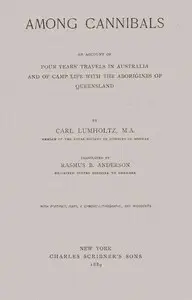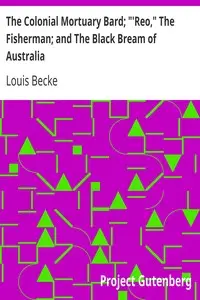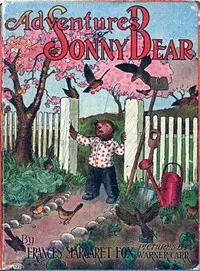"Five-Head" Creek; and Fish Drugging in the Pacific by Louis Becke is a story of adventure and observation, where the author recounts his experiences managing cattle in the rugged Australian outback and explores the unique fishing traditions of Pacific Islanders. The story paints a vivid picture of life at "Five-Head" Creek, detailing the struggles against drought and the simple pleasures found in nature. Becke’s narrative highlights not only the raw beauty of the Australian landscape and the daily routines of rural life but also the profound impact of rain's return. Shifting to the Pacific, the narrative explores the traditional practice of fish drugging with the "oap" plant, contrasting indigenous techniques and modern methods, which celebrates both environmental richness and cultural diversity.

"Five-Head" Creek; and Fish Drugging in the Pacific 1901
By Louis Becke
In a world of harsh landscapes and ancient traditions, a man finds wonder in both the rugged Australian outback and the ingenious fishing methods of Pacific Islanders.
Summary
About the AuthorGeorge Lewis Becke was at the turn of the nineteenth century, the most prolific, significant, and internationally renowned Australian-born writer of the South Pacific region. Having lived and worked among Pacific Islands and Islanders as a trader, ship's supercargo, and villager for some two decades, learning languages and observing natural and cultural life, Becke was prompted by J F Archibald of The Bulletin to write down his experiences, eventually becoming a popular and respected author of short stories, novellas, novels, as well as historic and ethnographic works.
George Lewis Becke was at the turn of the nineteenth century, the most prolific, significant, and internationally renowned Australian-born writer of the South Pacific region. Having lived and worked among Pacific Islands and Islanders as a trader, ship's supercargo, and villager for some two decades, learning languages and observing natural and cultural life, Becke was prompted by J F Archibald of The Bulletin to write down his experiences, eventually becoming a popular and respected author of short stories, novellas, novels, as well as historic and ethnographic works.



















